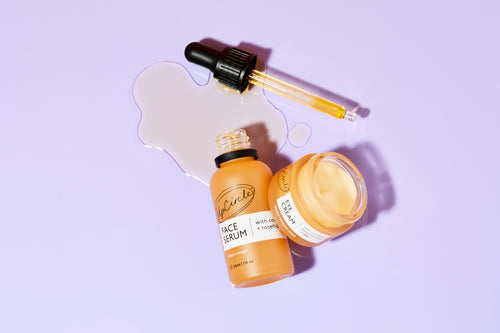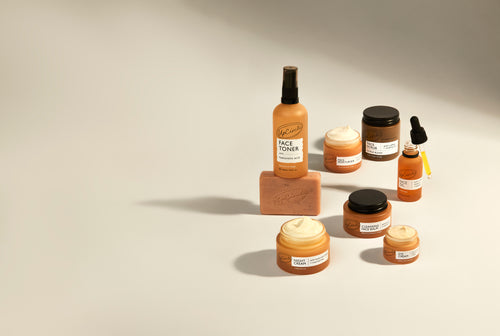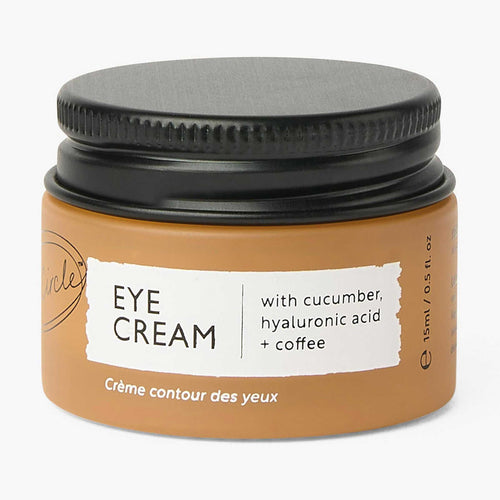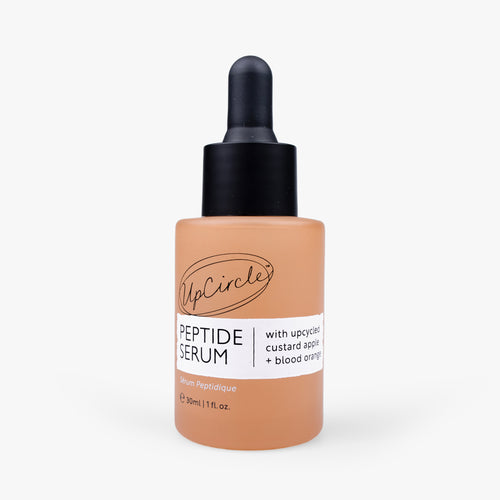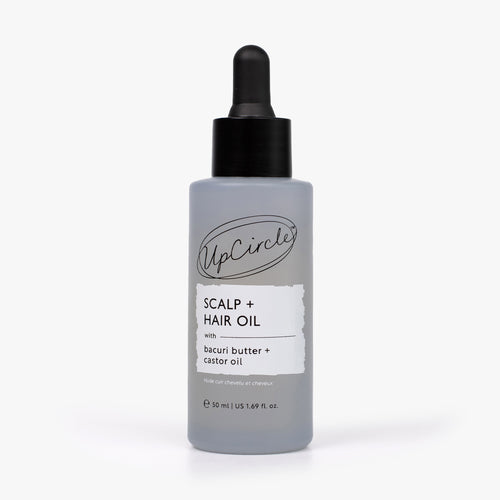Society is finally coming on board with the importance of Plastic-Free Cotton Buds. Even mainstream brands are now ditching the plastic and swapping in paper stems, even if the processes could still go much further in the green stakes. However, one product that is still highly problematic in terms of environmental damage is the face wipe. These seemingly convenient beauty staples are causing a whole host of issues, from the environment to our skin. Here we explain the problem with face wipes and share some brilliant eco-friendly alternatives.
The problems with face wipes
Disposable face wipes present us with two core problems: their impact on the environment, and their impact on your skin.
Are face wipes bad for the environment?
Most wet wipes are made using plastic. From a manufacturing point of view, these wipes which come ready-to-use (and therefore moist), need to not break down in the packaging. This means that they are intentionally designed so that they don’t biodegrade easily. That makes for a convenient product, but it is bad news for the environment.
The Marine Conservation Society carries out a ‘Great British Beach Clean’ each year. As part of their process, they survey what they find. Staggeringly in their 2020 survey, wet wipes were the third most common litter item found. That equates to 18 wipes for every 100 metres of beach. And that’s just the ones which are washed up. The amount being found is increasing year on year too, with a 400% rise in a decade.
Whilst the problem for beaches and the marine environment comes from individuals flushing the wipes down the toilet, rather than placing them in a bin, we also can’t ignore that these single-use plastic items aren’t necessary. When they end up in landfill they take up to 100 years to decompose too.
This is because face wipes are made from various fibres, such as polypropylene, rayon and polyester, which aren’t biodegradable. Even brands that have started making their face wipes from materials that do eventually break down, still take a very, very long time.
Are face wipes bad for your skin?
It’s not just the environment that isn’t happy about our wet wipe habit either. Your skin deserves better too.
In order for the face wipe to stay moist without the wipe disintegrating or going mouldy, lots of chemical components are involved. Parabens, alcohol, methylisothiazolinone and triclosan are just a few of the chemicals that are found in many wet wipes.
Given that most people simply use the face wipe to cleanse and remove make-up, rarely going on to then wash off the chemicals, these sit on the skin and are absorbed, often overnight.
Additionally, wet wipes aren’t as soft as they seem. Their slight roughness can cause micro tears which can enable dirt to get into your skin, causing outbreaks. The alcohol can make wipes very drying too.
Eco-friendly alternatives to face wipes
The good news is that switching single-use wet face wipes for an eco-friendly alternative is one of the easiest green swaps you can make.
First, we highly recommend that you avoid using face wipes full stop. Whilst many retailers have pledged to remove plastic from their wet wipes, many haven’t (such as Aldi and ASDA). What’s more, as you can see above, it’s not just about the plastic content of the wipes. And let’s not forget the packaging.
Instead, it’s best to stop using single-use wet wipes altogether. Here are our tips for eco alternatives to face wipes:
Washable make-up remover pads
Our Hemp + Cotton Makeup Remover Pads are the ideal eco-friendly alternative to disposable cotton pads and face wipes. They are reasonably large, making them easy to use, but compact enough to stash in your make-up bag or bedside drawer. The triple layer cotton and hemp material is gentle and soft, not likely to cause micro tears.
Each pack of washable make-up remover pads contains seven pads and a mesh bag. This means you can use one pad a day to remove your make-up and wash them easily in the machine in the mesh bag.
Our reusable face wipes are gaining quite a following for different uses. You can make your own wet wipes for sticky fingers when out by using tap water to moisten the pads and popping them in a watertight container.
Wash don’t wipe
It’s only in recent years that we’ve reached for face wipes to do the job that normal cleansing can do. No one says that you need to use make-up wipes to remove make-up and dirt, and knowing that you could be leaving nasty chemicals on your skin, you’ll want to make a change.
Our Cleansing Face Balm is one alternative to face wipes, or our Fennel + Cardamom Chai Soap does a brilliant job of cleansing your skin and getting rid of your make-up for the day.
Organic muslin cloths
Perfect for removing your cleansing face balm, our UpCircle Muslin Cloths are unbleached and certified organic. They are kind to your skin and machine washable for convenience.
It’s not just the face wipe
The single-use face wipe is a huge problem. However, the issue with them goes deeper than what they are made of and where they end up.
These disposable wipes are typically used to remove makeup. Again, what many people don’t realise is that makeup itself is often far from environmentally friendly. Your makeup may well include plastics, silicones and heavy metals. These components are then left on the wipe and they can bio accumulate in the environment. This means that even though the wipe itself may eventually break down, the chemicals don’t.
It’s one of the many reasons why we only use natural plant-based ingredients in our skincare products.
Making the change
As with getting rid of plastic straws, single-use plastic bags and cotton buds, the trick is to swap out for an alternative eco-friendly option. Make the change today.

